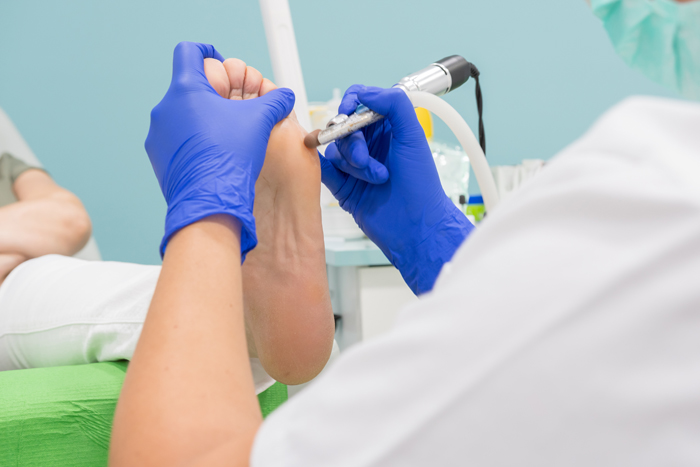Orthopedics
Bones, muscles, tendons, ligaments and joints in our body constitute the musculoskeletal system. Orthopedics is a branch of medical science that involves diagnosis, treatment and care of the parts of our musculoskeletal system. Orthopedists are highly trained in the treatment of diseases and disorders of the bones, muscles, tendons, joints and ligaments.
Orthopedists prescribe medication for minor disorders and they can also perform surgical procedures that are aimed at treating severe forms of musculoskeletal disorders. They can treat a wide variety of medical conditions, including sports injuries, accidental injuries, joint pain, back pain, bone fractures, sprains/strains, etc. They can even perform a dual role as physicians, surgeons, occupational and physical therapists and sports trainers.
To know more, search for an orthopedic doctor near you or visit an orthopedic hospital near you.

What are the types of orthopedic disorders/diseases?
Orthopedists can treat different types of orthopedic diseases, including minor, acute and chronic ones. Some of the common orthopedic disorders are:
- Arthritis (and its subtypes)
- Soft tissue injuries (muscles, ligaments, tendons)
- Joint pain
- Back pain
- Fractures
- Slipped disc (hernia)
- Slipped shoulder
- Bone spurs
- Trauma
- Carpal Tunnel Syndrome
- Ligament tear
- Sports injuries
- Joint overuse injuries/wear and tear
- Tendinitis
- Ankylosis
- Spine diseases
- Epicondylitis
What are the symptoms of orthopedic disorders?
Some of the common symptoms of orthopedic disorders are:
- Joint pain
- Numbness
- Tingling
- Loss of function
- Difficulty moving limbs
- Pain caused by repetitive motion
- Swelling
- Redness
- Pain while walking/lifting/moving or other actions
- Fatigue or weakness
- Stiffness
- Muscle spasms
If you experience any of the above symptoms on a chronic, acute or severe level, you should consult an orthopedist. An experienced orthopedist can diagnose and treat your disorder effectively. Request an appointment at Apollo Spectra Hospitals, Karol Bagh, New Delhi. Call 1860 500 2244 to book an appointment.
What are the causes of orthopedic disorders?
The root causes of orthopedic disorders may vary, depending on the type of the disorder, age, lifestyle, occupation and many other individual factors. Some of the common causes of orthopedic disorders are:
- Age
- Gender
- Sports
- Injuries/trauma/accidents
- Occupational hazards
- Physical wear and tear from repeated motions
- Calcium deficiency
- Obesity
- Smoking
- Improper techniques used for lifting/exercise
- Genetic factors
- Biomechanical factors
- Psychosocial factors
When do you need to see a doctor?
If you experience any of the symptoms of an orthopedic disorder, you should see a doctor. Aged people must regularly undergo health checkups conducted by orthopedists to detect a bone disorder in the early stages. People who have physically intense occupations must also consult an orthopedist.
If you have recently suffered an accidental injury,
Request an appointment at Apollo Spectra Hospitals, Karol Bagh, New Delhi.
Call 1860 500 2244 to book an appointment.
How are orthopedic disorders treated?
Depending on the condition, severity and other influencing factors, orthopedists deploy the following treatment methodologies:
- Pain medication
- NSAIDs (Non-steroidal anti-inflammatory drugs)
- Physiotherapy
- Exercise/yoga (for minor issues)
- Replacement surgeries (knee/hip)
- Arthroscopy
- Minimally invasive surgeries (MIS)
- Open surgeries
- Arthroplasty
- Bone grafting
- Laminectomy
- Osseointegration
Conclusion
Thus, orthopedics is a significant and particularly relevant section of medicine, which has been a lifesaver for patients suffering from chronic musculoskeletal disorders/injuries. It has also improved the quality of life for many other people who have experienced pain from orthopedic diseases. Due to the advancements in modern orthopedics, millions of people can seek diagnosis and effectively treat their musculoskeletal issues.
Arthroplasty, pediatric orthopedics, foot and ankle surgery, spine surgery, orthopedic oncologist, surgical sports medicine, orthopedic trauma, osseointegration, etc. are some of the common orthopedic subspecialties.
After a physical examination, various types of diagnostic tests can be performed to detect orthopedic disorders. Some of the common testing methodologies are X-rays, CT scans, MRI scans, etc.
Rest, medication, physical therapy, exercises, massage, ultrasound, injections, surgery, discectomy, lumbar laminotomy, spinal fusion and artificial disc surgery are used for the treatment of herniated discs.
Treatments
Our Top Specialities
NOTICE BOARD
CONTACT US
CONTACT US
 Book Appointment
Book Appointment


.svg)
.svg)
.svg)
.svg)








